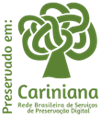Estudio preliminar sobre la percepción de las habilidades necesarias para el emprendimiento en cursos de doctorado: el punto de vista de estudiantes y docentes
DOI:
https://doi.org/10.62758/re.v2i2.122Palabras clave:
Empreendimiento, Competencias, Estudios de DoctoradoResumen
El origen de este trabajo se encuentra en el proyecto ProPhD, financiado en el marco del programa H2020-Swarfs que comenzó en 2020 y cuyo objetivo es implementar metodologías colaborativas innovadoras que permitan a los doctorandos adquirir las bases teóricas y las habilidades necesarias para desarrollar su proyecto empresarial, independientemente de su disciplina. El objetivo final del proyecto es la creación de una plataforma y el desarrollo de metodologías para el aprendizaje en emprendimiento. Así pues, el presente trabajo se basa en la enseñanza del emprendimiento en programas doctorales para detectar las diferencias entre ambos grupos, con el objetivo de poder diseñar así programas de formación y metodologías innovadoras para la formación en emprendimiento. Para ello se ha aplicado una metodología mixta, basada en cuestionarios y entrevistas a docentes y estudiantes de doctorado. Entre los resultados más destacados se encuentran las discrepancias entre estudiantes y docentes sobre los contenidos primordiales de los cursos, especialmente entre ciertas competencias concretas, como la motivación o la captación de recursos.
Citas
Ahmad, SZ & Buchanan, RF (2015). Entrepreneurship education in Malaysian universities, DOI: https://doi.org/10.1080/13583883.2015.1106577
Tertiary Education and Management, 21(4), 349-366, 10.1080/13583883.2015.1106577
Almobaireek, W.N. & Manolova, T.S. (2012) Who Wants to Be an Entrepreneur? Entrepreneurial Intentions among Saudi University Students. African Journal of Business Management, 6, 4029-4040. https://doi.org/10.5897/AJBM11.1521 DOI: https://doi.org/10.5897/AJBM11.1521
Arasti, Z., Falavarjani, M. K., & Imanipour, N. (2012). A Study of Teaching Methods in Entrepreneurship Education for Graduate Students. Higher education studies, 2(1), 2-10. 10.5539/hes.v2n1p2 DOI: https://doi.org/10.5539/hes.v2n1p2
Cope, J. (2005). Toward a dynamic learning perspective of entrepreneurship. Entrepreneurship theory and practice, 29(4), 373-397. https://doi.org/10.1111/j.1540-6520.2005.00090.x DOI: https://doi.org/10.1111/j.1540-6520.2005.00090.x
Davey, T., Hannon, P., & Penaluna, A. (2016). Entrepreneurship education and the role of universities in entrepreneurship: Introduction to the special issue. Industry and higher education, 30(3), 171-182. https://doi.org/10.1177/0950422216656699 DOI: https://doi.org/10.1177/0950422216656699
Gibb, A. (2002). In pursuit of a new ‘enterprise’ and ‘entrepreneurship’ paradigm for learning: creative destruction, new values, new ways of doing things and new combinations of knowledge. International journal of management reviews, 4(3), 233-269. https://doi.org/10.1111/1468-2370.00086 DOI: https://doi.org/10.1111/1468-2370.00086
Groves, R.M., Fowler Jr, F.J., Couper, M.P., Lepkowski, J.M., Singer, E. & Tourangeau, R. (2011) Survey methodology. John Wiley & Sons.
Hurt, R. L., & McLaughlin, E. J. (2012). An applied introduction to qualitative research methods in academic advising. NACADA Journal, 32(1), 63-71. DOI: https://doi.org/10.12930/0271-9517-32.1.63
Hytti, U., & O’Gorman, C. (2004). What is “enterprise education”? An analysis of the objectives and methods of enterprise education programmes in four European countries. Education+ training. 46(1), 11-23. https://doi.org/10.1108/00400910410518188 DOI: https://doi.org/10.1108/00400910410518188
Joye, D., Wolf, C., Smith, T. & Fu, Y. (2016). Survey methodology: challenges and principles. In Joye, D., Wolf, C., Smith, T. & Fu, Y. (Eds.) The SAGE Handbook of survey Methodology (pp. 3-15). SAGE Publications Ltd, https://dx.doi.org/10.4135/9781473957893 DOI: https://doi.org/10.4135/9781473957893.n1
Lindh, I., & Thorgren, S. (2016). Entrepreneurship education: the role of local business. Entrepreneurship & Regional Development, 28(5-6), 313-336. https://doi.org/10.1080/08985626.2015.1134678 DOI: https://doi.org/10.1080/08985626.2015.1134678
Nardi, P.M. (2018) Doing survey research: A guide to quantitative methods. Routledge. DOI: https://doi.org/10.4324/9781315172231
Nicotra, M., Del Giudice, M., & Romano, M. (2021). Fulfilling University third mission: towards an ecosystemic strategy of entrepreneurship education. Studies in Higher Education, 46(5), 1000-1010. https://doi.org/10.1080/03075079.2021.1896806. DOI: https://doi.org/10.1080/03075079.2021.1896806
Peng, Z., Lu, G., & Kang, H. (2013). Entrepreneurial intentions and its influencing factors: A survey of the university students in Xi’an China. Creative education, 3(08), 95. 10.4236/ce.2012.38B021 DOI: https://doi.org/10.4236/ce.2012.38B021
Rothaermel, F. T., Agung, S. D., & Jiang, L. (2007). University entrepreneurship: a taxonomy of the literature. Industrial and corporate change, 16(4), 691-791. doi:10.1093/icc/dtm023 DOI: https://doi.org/10.1093/icc/dtm023
Seikkula‐Leino, J., Ruskovaara, E., Ikavalko, M., Mattila, J. & Rytkola, T. (2010), Promoting entrepreneurship education: the role of the teacher?, Education + Training, 54(2), 117-127. https://doi.org 10.1108/00400911011027716 DOI: https://doi.org/10.1108/00400911011027716
Zappe, S., Hochstedt, K., Kisenwether, E., & Shartrand, A. (2013). Teaching to innovate: Beliefs and perceptions of instructors who teach entrepreneurship to engineering students. International Journal of Engineering Education, 29(1), 45-62.
Descargas
Publicado
Cómo citar
Número
Sección
Licencia
Derechos de autor 2022 Revista EDICIC

Esta obra está bajo una licencia internacional Creative Commons Atribución 4.0.
La Asociación posee los derechos de autor de los textos que publica y adopta la licencia Creative Commons, CC BY 4.0 DEED Atribución 4.0 Internacional (https://creativecommons.org/
Usted es libre de:
- Compartir: copiar y redistribuir el material en cualquier medio o formato para cualquier propósito, incluso comercialmente.
- Adaptar: remezclar, transformar y construir a partir del material para cualquier propósito, incluso comercialmente.






